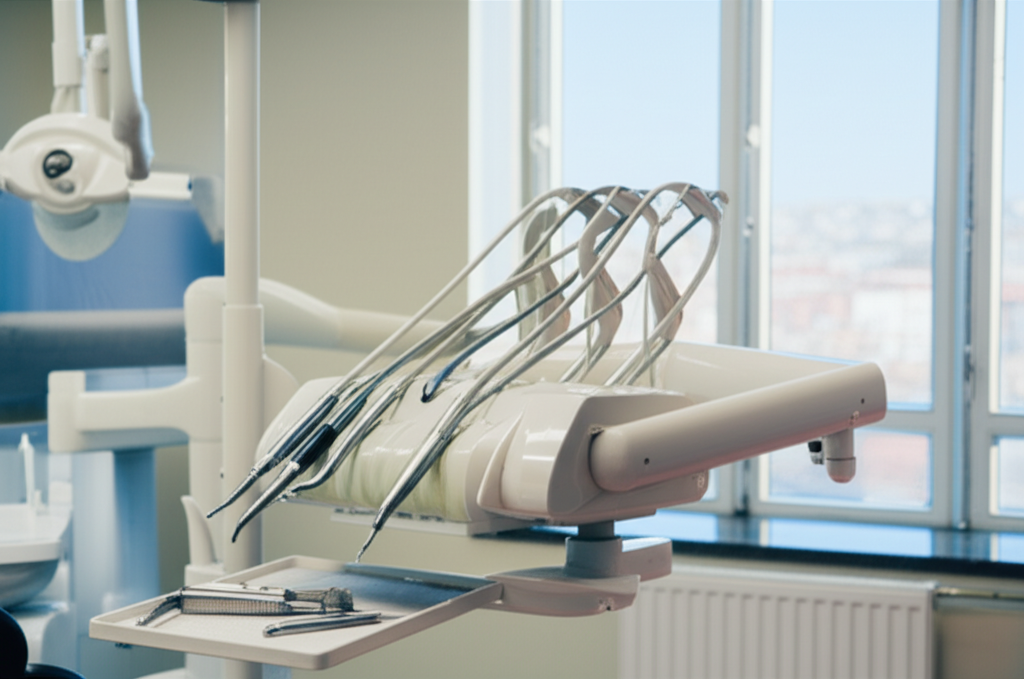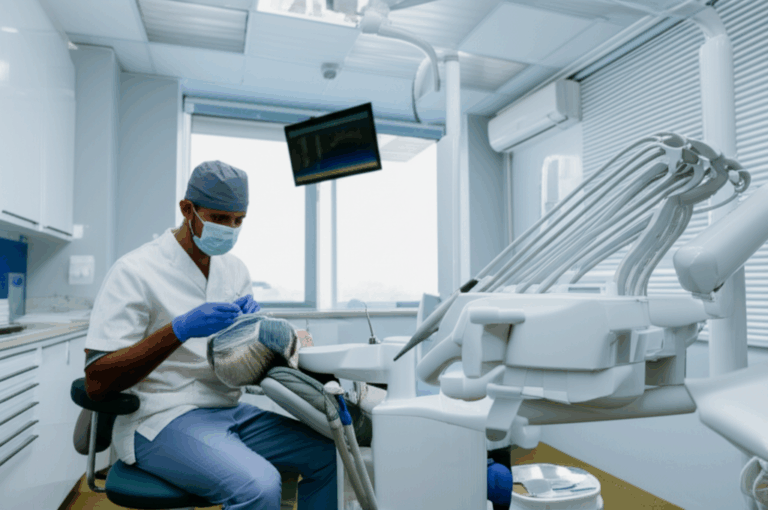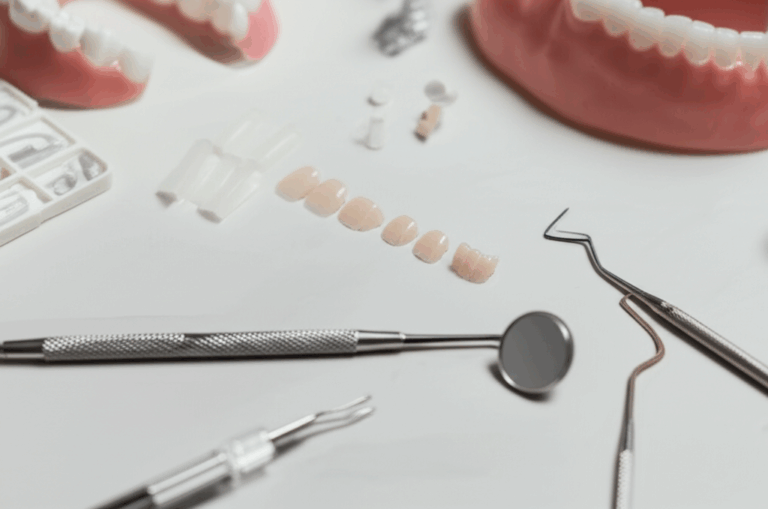
How to Work as a Dentist in Italy: Your Complete Guide to Licensing, Jobs, and Life
Question: “Can I work as a dentist in Italy? What do I need to get licensed, find a job, and build a life there?”
Italy’s mix of modern dentistry, amazing culture, and a changing dental market draws many EU and non-EU dentists each year. The process looks hard at first. But it’s doable with a clear plan. This guide gives you that plan.
We’ll break down how your degree can be accepted, why C1 Italian is a must, how to sign up with FNOMCeO and the Albo degli Odontoiatri, and what to expect from the job market. You’ll see the difference between people from the EU/EEA/Switzerland and those from outside Europe. We’ll talk about how long things take, what papers you need, where people usually get stuck, and what steps you can start right now.
I. Introduction: Your Dream of Practicing Dentistry in Italy
Imagine this. You finish a nice day fixing teeth. You step out into a piazza in Rome or Milan for a walk. You get a great job plus Italy’s lifestyle. That dream brings many dentists to Italy’s healthcare system.
This guide tells you the steps to work as a dentist in Italy. You’ll see how your degree can be accepted, what the Italian Ministry of Health wants, and what FNOMCeO and the Albo degli Odontoiatri do. We’ll also talk visas and permits, then jobs, pay, taxes, insurance, CPD/ECM, and the work culture in clinics.
II. Key Requirements at a Glance: What You Need to Know First
Think of Italy’s process as four big steps:
- Getting your degree accepted
- Proving you know Italian at C1 level
- Signing up with the Albo degli Odontoiatri through FNOMCeO
- Having the right to work in Italy (visa and residency, if you’re from outside Europe)
EU/EEA/Swiss dentists are usually covered by EU Directive 2005/36/EC, so it’s simpler. Non-EU dentists have a harder path called “equipollenza” or “riconoscimento di titolo”, sometimes with extra tests. Everyone needs good Italian skills and everyone must join the local “Ordine dei Medici Chirurghi e degli Odontoiatri” where they want to work.
III. Step 1: Professional Qualification Recognition in Italy
A. For EU/EEA/Swiss Citizens
Based on EU Directive 2005/36/EC, which means dentists with the right degree from EU/EEA countries or Switzerland can get their qualification accepted more easily.
The Ministry of Health (Ministero della Salute) handles your paperwork.
Submit:
- Your dental degree and, if needed, paperwork showing it matches the Italian dental degree.
- School transcripts with hours, classes, and work experience.
- Certificate of Good Standing from your dental authority.
- Proof of citizenship and ID.
- Short CV with work experience and any extra training.
- Official translations into Italian if needed.
- Apostille or legalization if your papers are from outside Italy.
Time: 6–12 months if all papers are OK.
The European Professional Card (EPC) doesn’t work for dentistry just yet. You still go through the Ministry and local registration.
B. For Non‑EU Citizens
You ask for “riconoscimento di titolo estero” or “equipollenza” so Italy counts your degree.
The Ministry of Health checks if your degree matches Italian requirements.
You might need:
- An extra test (prova attitudinale)
- A period of working under supervision
- Other exams if you claim to be a specialist (like orthodontist, oral surgeon, etc.)
Submit:
- Degree and all transcripts
- Course outlines if asked
- Certificate of Good Standing
- CV with school and clinic details
- ID and proof of citizenship
- Translations into Italian
- Apostille or legalization as needed
- Any letters showing your clinic work
Time: Usually 12–24 months, sometimes longer.
C. Paperwork Tips
- Apostille or legalize your papers if needed (depends on your country).
- Use only sworn translators. Save all certifications—their stamp proves the translation is real.
- The Ministry sometimes asks an Italian university to help check your degree.
- Keep all important papers in a safe, well-marked folder and scan them too.
IV. Step 2: Mastering the Italian Language
A. Why You Need Good Italian
You diagnose, reassure patients, and get consent—all in Italian. You need to explain things clearly, fill in patient records, and deal with a Italian health authorities. Take this seriously.
B. What Level You Need
Aim for C1 on the CEFR scale.
Most Ordini want proof of advanced Italian. You must be able to talk to patients, their families, and colleagues.
C. How To Learn
- Take special classes for health workers.
- Spend time in an Italian-speaking setting if you can.
- Get a certificate like CILS or CELI to prove your level.
- Practice real-life clinical conversations—consent, post-op advice, emergencies.
V. Step 3: Registration with the Italian Professional Order (Albo degli Odontoiatri)
A. The System
FNOMCeO is the national body for doctors and dentists. Dentists join the Albo degli Odontoiatri. You sign up at your local provincial “Ordine dei Medici Chirurghi e degli Odontoiatri”. This gives you your license number. You can’t work without it.
B. Application Steps
- Pick the province you want to live or work in. Ask the local Ordine to send their checklist.
- Send your approval letter from the Ministry of Health.
- Show your ID and Italian tax code (Codice Fiscale).
- Prove your Italian language level.
- Bring your Certificate of Good Standing if they ask.
- Show your insurance, or say you’ll get it before you start.
- Pay the sign-up fee.
C. What They Need
- Degree recognition letter
- ID and Codice Fiscale
- Language proof (C1)
- Passport-sized photos if needed
- Proof of where you live in Italy
D. Fees
- First signup: €100–€200 (changes by province)
- Yearly renewal: €100–€250
You must keep up with your ECM/CPD learning to stay active.
VI. Step 4: Visa and Immigration Procedures (Non‑EU Citizens)
A. The Right to Work
You need a legal right to work as a dentist. Italy gives work visas and residence permits based on national laws. Rules can change, so always check what’s current!
B. Types of Visas
- Work visa (someone hires you) You get a job offer, the clinic requests permission, you apply for a visa at the Italian consulate.
- Self-employment visa You set up as a “libero professionista” after joining the Albo. You often need to show you have money, an office, and go through Chamber of Commerce steps.
- Highly skilled pathways Some programs exist for top professionals, but these rules change often.
C. Residence Permit
After you arrive, you must apply for a Permesso di Soggiorno.
- Go to the post office or Questura as told.
- Keep all receipts and appointment letters. You’ll need them for many things.
D. Sponsorship
- If working for someone, the clinic will give you a job contract and show they can sponsor you.
- If on your own, you must prove you are allowed to work.
VII. Step 5: Finding a Dentist Job in Italy
A. Public vs Private
- Private: Most dentists work here, in small or group practices. More variety, better pay for experienced/specialists, and more cosmetics work.
- Public (SSN): Fewer jobs, enter by passing a public competition (concorso pubblico). Pay is steady, but starting salary is lower.
B. Job Hunt Tips
- Search online (LinkedIn, indeed.it, healthcare job sites)
- Use agencies that place healthcare workers
- Network! Join groups like AIO or ANDI, meet people at events.
- Reach out to clinics directly—send a brief email, CV, and a short cover letter in Italian.
C. Making Your Application
- Keep your CV simple, add your registration or when you expect it.
- Put it in Italian for most jobs.
- Cover letter: explain why you want to work in Italy, in that city, your experience, and your Italian skills.
D. Interviews
- Be on time, bring all your papers.
- Be honest about your language skills.
- Be ready for questions about patient care and working with others.
- Salary talks usually come after they like your professional fit.
VIII. Step 6: The Italian Dental Market & Workplace Culture
A. What’s in Demand
Private clinics need orthodontists, implant specialists, esthetic, and gum specialists. Implants and adult orthodontics are growing. Oral surgeons with advanced skills find work in big group clinics.
B. What You Can Earn
Pay depends on where, how, and what you do.
- Starting private: €30,000–€50,000 gross/year
- Experienced/specialist: €60,000–€100,000+ (higher if you own a clinic)
- Public/SSN: €40,000–€70,000
Big cities pay more, but cost more too. Small towns have steadier patient flow and less competition.
C. Work Culture
Friendly communication matters. Patients want clear info and a calm dentist. Work with assistants, hygienists, techs. Many clinics use digital workflows (CAD/CAM, 3D imaging) and need good teamwork with dental labs.
D. Where to Look
- Big cities: Milan, Rome, Bologna, Florence, Naples—busy markets with lots of jobs
- Smaller cities: Easier to build up your patient list, cheaper living
IX. Step 7: Setting Up for Work & Life in Italy
A. Taxes and Paperwork
- Codice Fiscale: Get this tax number early, you’ll need it for everything.
- If you’re an employee: your employer handles most taxes.
- If you’re self-employed: open a Partita IVA (tax number), register for VAT, pay into social security (INPS).
- Hire a commercialista (tax helper)—they save you headaches.
B. Professional Insurance
Dentists must have malpractice insurance. Pick coverage that fits your job—if you do surgery, you may pay more. Always have proof of your insurance for the Ordine.
C. Continuing Learning (ECM/CPD)
Italy requires ongoing training. You earn ECM credits in cycles—check current rules and keep your credits logged. Pick courses based on your clinic work.
D. Healthcare and Social Security
SSN: You pay in through taxes as a worker. Check what’s covered and if you want extra private health insurance.
E. Working with Dental Labs
You’ll often work with labs for things like crowns, bridges, veneers, implants, and night guards. Many clinics also use digital impressions, scans, and designs. To see how these labs can support you, check out digital dental lab, crown and bridge dental laboratory, or implant dental laboratory.
X. Challenges and Tips for Success
Common Hurdles
- Paperwork: Many steps, delays, lots of stamps and translations.
- Language: C1 Italian takes effort—start soon!
- Degree checks: Non-EU dentists might need extra tests or supervision.
- Public jobs: SSN roles need exams and can take a long time.
How to Win
- Start learning Italian early, especially healthcare talk.
- Make a checklist—track which docs are translated, apostilled, sent, etc.
- Network! Go to AIO, ANDI events. Having friends in the field helps a lot.
- Budget wisely—the wait before full registration can take months.
- Keep going, even when it’s slow. Patience pays off!
XI. Data and Numbers You Should Know
| Metric/Category | Detail/Value | Notes |
|---|---|---|
| Average New Private Dentist Pay | €30,000–€50,000 | Varies a lot |
| Experienced Private Dentist | €60,000–€100,000+ | More for specialists/owners |
| Public Sector/SSN Dentist | €40,000–€70,000 | More benefits, less pay |
| Total Registered Dentists (2023/24) | ~64,000 | Source: FNOMCeO |
| Foreign-Trained Dentists | 5–10% | Growing slowly |
| Recognition Waiting Time (EU/EEA/Swiss) | 6–12 months | If documents are all right |
| Recognition Time (Non-EU) | 12–24+ months | Can be longer |
| Required Italian Level | C1 CEFR | For safe practice |
| Sign-up Fee (Ordine) | €100–€200 | Depends on area |
| Annual Dues (Ordine) | €100–€250 | Pay yearly |
| Insurance Costs | €500–€2,000 | More for surgery jobs |
| Private Job Market | Good/Stable | Driven by cosmetic demand |
| Public Jobs (SSN) | Few Openings | Competition is tough |
| In-Demand Roles | Orthodontics, Surgery, Implants | |
| Trends | EU Recognition Success Rate | High |
| Non-EU Success (No Extra Test) | Low–Mid | Most need extra steps |
| ECM/CPD Credits | Needed each cycle | Rules can change |
| Average Patient-to-Dentist | ~900–1000 | Regional differences |
XII. Who Is This Path For
Good Candidates
- EU/EEA/Swiss dentists with the right degree who want to live and work in Italy.
- Non-EU dentists ready to spend time and energy on paperwork, language, and tests.
- Specialists who want to join clinics with more services (orthodontics, implants, etc.).
- Dentists who will reach C1 Italian and follow local rules and ethics.
Who Might Struggle
- People wanting to work only in English (except for rare expat clinics).
- Dentists who dislike paperwork or have no time for recognition steps.
- Anyone not willing to keep up with continuing learning or professional rules.
Common Questions
Do I need to sit an exam? EU/EEA/Swiss dentists often don’t if their degree matches. Non-EU dentists may have to do a test or supervised period.
Can I work as a hygienist or assistant while I wait? No. Hygienist and assistant are different jobs with separate rules.
Can I work just in English? Rarely. Some clinics in big cities treat foreigners, but Italian is needed for most of the job.
Can I do a specialist school? Yes, but admission needs you to have an accepted dental degree in Italy.
Do I need extra insurance? Yes, malpractice insurance is a must. Some buy extra health insurance for themselves.
Best cities for dental jobs? Milan, Rome, Bologna, Florence, and Naples offer many chances. Smaller towns can be great for long-term patients.
How do taxes work? If employed your pay is taxed at source. If self-employed you need a Partita IVA, to pay VAT and social security. A tax helper (commercialista) is useful.
XIII. The “Guide” You Can Use Today
Things To Do Now
- Start learning Italian for healthcare—aim for C1, and practice clinical talk every day.
- Build your document folder: degree, transcripts, Diploma Supplement, Good Standing, CV, ID, proof of citizenship, work letters. Apostille/legalize as needed. Get Italian translations.
- Map your path: EU or non-EU. Ministry of Health steps. Albo registration. Visa steps if needed.
- Check the market: Search dentist jobs in Rome, Milan, Bologna, Florence, Naples. Look at clinic websites. Join AIO and ANDI for news and events.
- Update your CV and cover letter in Italian. Highlight your skills and language progress.
When To Ask For Help
- Ask the Ministry of Health if you have questions about recognition.
- Ask the local Ordine about sign-up rules and fees.
- See an immigration lawyer if your visa case is tricky.
- Ask a commercialista to help with tax, Partita IVA, and social security.
- Talk to an insurance broker who knows dentist insurance rules in Italy.
XIV. Ethics and Life as a Dentist
Dentists in Italy work with trust. The Codice Deontologico sets out patient rights, consent, patient care, privacy, and professional relationships. Your Albo membership means you must follow these standards. Ongoing training will keep you updated.
XV. Costs, Salaries, and Cost of Living
Plan your budget so you don’t get stressed. You’ll spend money upfront on translations, apostilles, fees, and insurance. Clinics in big cities pay better but are expensive to live in. Some start as employees and open their own practice later.
XVI. Living in Italy: Residency and Citizenship
If you want to stay long-term, look into rules for permanent residence after living legally for several years, or citizenship if you qualify. Rules change so check official government sites.
XVII. Healthy Takeaway: Steps to Get Started
- Know your route: EU = mutual recognition. Non-EU = “equipollenza” or “riconoscimento di titolo”.
- Prepare your documents: degree, transcripts, Diploma Supplement, Good Standing, CV, ID, with apostilles/legalizations and Italian translations.
- Learn Italian to C1: Needed for real patient care.
- Join the Albo degli Odontoiatri: Check local Ordine, pay fees, and keep up with annual dues and credits.
- Sort your legal status: Non-EU dentists need a work or self-employment visa and a Permesso di Soggiorno.
- Job search: Most jobs are in private clinics, SSN roles need exams and you should network with AIO and ANDI.
- Get insurance: malpractice cover is a must. Set up your taxes and social security with a good advisor.
- Always keep learning and follow professional ethics.
Remember: Start with language and papers. Reach out to the Ministry of Health and your local Ordine. Network while you wait. Italy moves slowly, but staying patient brings results. That first “thank you” from an Italian patient makes all the work worth it.
Extra Resources
- FNOMCeO and your local Ordine for sign-up.
- Italian Ministry of Health for recognition steps.
- AIO and ANDI for networking and learning.
- Explore how a digital dental lab can support clinic workflows.
You have the skills. With steady effort, Italy can offer you a great dental career and life. Take your first steps today








